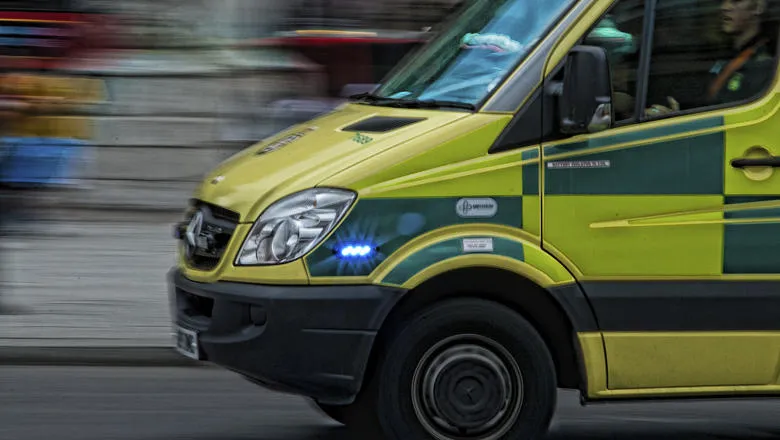The data from the Sentinel Stroke National Audit Programme at King’s College London reveals significant delays in pre-hospital times for stroke patients in England.
Dr Youssef Hbid, from the Sentinel Stroke National Audit Programme in the School of Life Course & Population Sciences
07 November 2024
King's data analysis behind NHS stroke campaign
The NHS has launched a major new campaign to urge the public to call 999 immediately if anyone experiences one of the three common symptoms of a stroke.

The campaign is based on data published by the Sentinel Stroke National Audit Programme (SSNAP) at King’s which shows that tens of thousands of people who have a stroke could be diagnosed and treated sooner. Researchers found that the average time between onset of first symptoms and a 999 call being made was nearly an hour and a half.
An estimated 100,000 people in the UK have a stroke each year. The potentially life-threatening condition occurs when the blood supply to part of the brain is cut off and rapid treatment is essential for survival and reducing the chance of long-term problems such as paralysis.
Data from the SSNAP shows in 2023-24, of 41,327 patients with a recorded time of symptom onset, the average time between first symptom and a 999 call being made was 88 minutes.
NHS England have also released new polling of 2,001 adults in England that found that 57% of respondents believed you should have 2-3 symptoms of a stroke before calling 999, despite just one being a sign of a medical emergency.
NHS England are encouraging people to act quickly if they, or someone they’re with, experiences the three common symptoms including struggling to smile (Face) or raise an arm (Arms), or slurring their words (Speech).
He added: "These findings emphasise the need for targeted public health campaigns, refined triage protocols, and optimised clinical pathways to improve stroke care timelines."
Kaili Stanley, Stroke Programme Manager for SSNAP, said: “This report further enhances the stroke audit’s routine reports on in-hospital and community services across the UK and highlight key areas for targeted quality improvement in the pre-hospital end of the stroke care pathway. The SSNAP team is developing research outputs using the linked registry data to better understand the factors associated with delays in each stage of the pre-hospital pathway.
Professor Sir Stephen Powis, the National Medical Director of NHS England, said: “These figures highlight very clearly that we must do more to support people to recognise the symptoms of stroke in themselves and others and take action to call 999 at the earliest opportunity. Stroke symptoms can be less obvious or dramatic than you might expect, but even if it doesn’t seem like it, any sign of stroke is always an emergency and it’s vital you call 999 immediately."
“This campaign is so important – greater awareness of the need to act fast and dial 999 could help save and protect many more lives, as we know that earlier recognition of symptoms and immediate action to call 999 can enable faster access to specialist treatment and the best chance of reducing long-term effects of a stroke.”
Professor Sir Stephen Powis, the National Medical Director of NHS England

